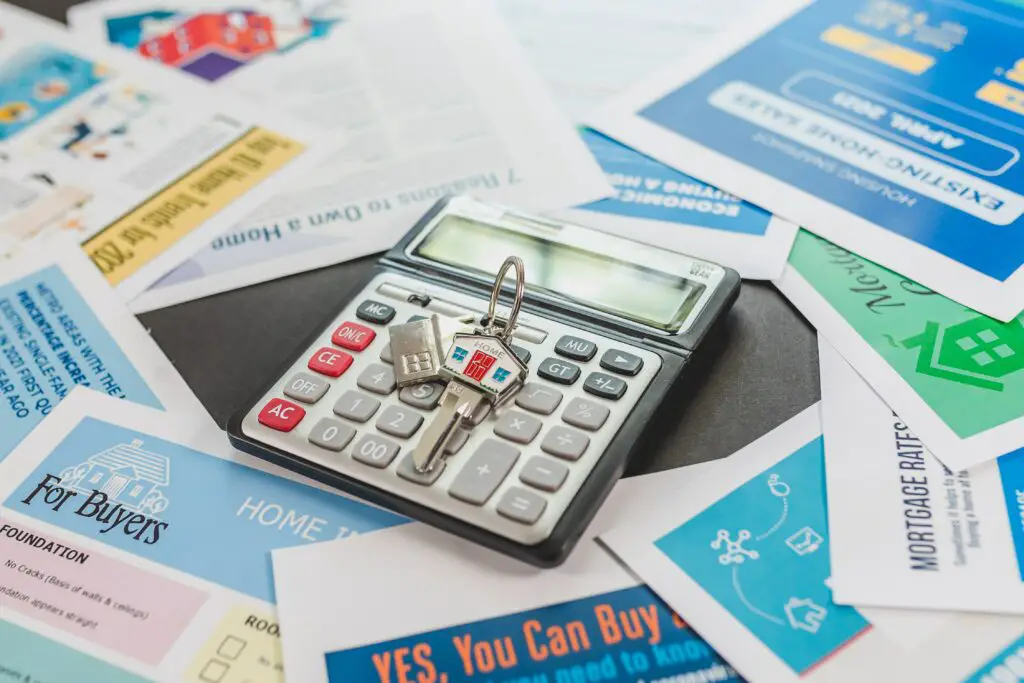Do you want to start investing, but do not know how to become an investor? If you're interested in becoming an investor, you've come to the right place. In this guide, we will discuss everything you need to know about becoming an investor.
We will also provide tips on how to get started, even if you don't have a lot of money. So whether you're interested in real estate, startups, or the stock market, keep reading for all the information you need to become a successful investor.
What do you need to become an investor?
Technically, you don't need much to become an investor, especially as a retail investor. Apps such as Robinhood and Wealthsimple trade have made it easy for anyone to start investing in stocks.
But, different asset classes might require different things. For example, investing in real estate requires more money as you will need to put down a deposit, usually 20%, on the property.
Startups are also a bit more complicated as you might need to go through an accredited investor process, which we will discuss later. However, in general, all you need to become an investor is some money that you are comfortable losing and a bit of knowledge.
But just because it's easier to become an investor these days, doesn't mean that it wouldn't be helpful to have additional attributes to raise the probability of becoming a successful investor and not just an average one.
To become a successful investor, you need certain skills, resources, and connections. The skills that you need to become an investor are:
Analytical skills
You need to be able to analyze opportunities and make sound investment decisions. This is because investments are all about minimizing risk and maximizing returns.
Research skills
Being able to find the right opportunities is important. Knowing how to do your due diligence before investing will help you weed out the bad deals and find the diamonds in the rough.
Patience
You need to be patient when it comes to investments because they are a long-term game. You shouldn't expect to get rich quickly when you're investing. Instead, you should focus on building your wealth over time.
It might also take some time for a worthy investment opportunity to arise.
Discipline
Just like with anything else in life, discipline is important when it comes to investing. You need to be disciplined with your money and your investment decisions. This is because it's easy to make impulsive decisions when it comes to investing, which can lead to losses.
Financial skills
You also need to understand financial concepts and have the ability to manage your finances. For example, you need to understand how to calculate risk and return, as well as how to read financial statements.
By running the probability numbers of different investments, you can better understand which ones are worth taking and which ones aren't.
Now that we've gone over the skills you need to become an investor, let's discuss the resources and connections.
Resourcefulness
Being resourceful will help you in your journey to becoming an investor. This is because you'll need to be able to find information and resources on your own. You should also be able to find funding for your investments.
For example, if you're interested in real estate, you'll need to find a good mortgage broker who can help you get the best loan for your needs.
Resources can come in liquid cash, but they can also come from other places. For example, if you have a lot of equity in your home, you can use that as collateral for a loan to invest in another property. If you have a good credit score, you can use that to get a loan with a lower interest rate.
Maybe there's some furniture laying around in the attic that could be repainted and sold for investment capital. Being resourceful requires a bit of creativity but if you can spot opportunities to raise funds as well as lower risk, you'll be well on your way to becoming a successful investor.
Connections
It's also important to have a good network of connections when you're an investor. This is because you'll need to be able to talk to people and get information from them. For example, if you're interested in real estate, you should connect with a real estate agent or broker.
When it comes to the financial aspect of real estate investing, you should connect with certain financial institutions, lenders, and other individuals and entities that can help you with the capital and other financial resources.
If you're interested in startups, you should connect with entrepreneurs and venture capitalists. By having these connections, you'll be able to get insights and information that you wouldn't be able to get on your own.
Connections also help you find additional investment opportunities. For example, if you are a part of an investing mastermind, someone might be interested in commodities while others are experts in green tech.
By having strong connections, you can learn about different opportunities and make better investment decisions. Now that we've gone over the skills you need as well as the resources and connections, let's proceed with how we can make profits as investors in different asset classes.
Is it easy to become an investor?

It's easy to become an investor, but it might not be easy to become a successful and experienced investor. This is because there are a lot of things you need to know and there is a learning curve. However, if you're willing to put in the work, it is possible to become a successful investor.
Being able to evaluate investment-worthy opportunities requires a framework to ensure a higher probability of success. For example, writing an investment thesis can force you to think critically about what you're looking to achieve and how the investment will help you reach your goals.
A well-crafted investment thesis will also give you a clear exit strategy from the start, which is important because it's easy to get emotionally attached to an investment and hold on to it for too long.
Sure, it's easy to become an investor by clicking a few buttons on your mobile app but it's not so easy to make money from it. Some forms of investing are also easier than others.
Investing in ETFs for other long run is much easier than investing in startups and looking for an exit in five years or less. Each market has its own unique level of difficulty depending on the individual investor's skills and abilities.
Overall, investing can be made easier by educating yourself on the different asset classes and ways to profit from them. One way to do this is to read more articles on this website as well as books on investing.
You can also attend seminars, find a mentor, or join an investing club. There's a common saying that goes, "The more you learn, the more you earn." This is especially true in investing.
Is it hard to be an investor?
Yes, it can be hard to be an investor. Information overload, a lack of emotional control, and the need for instant gratification are all common problems that investors face. It's important to have a solid understanding of what you're investing in but it's also important to know how to disregard irrelevant information.
This is because there's a lot of noise in the market and it can be easy to get caught up in it. One way to combat this is to have a clear investment thesis and focus on your goals. By having a written plan, you'll be less likely to get sidetracked by the noise.
It's good to have your ears open, but there is only so much time in a day and you need to focus on what's important. Another problem that investors face is letting their emotions get the best of them.
This can lead to making impulsive decisions, which can be costly. It's important to stay calm and rational when making investment decisions. This can be difficult for many people. If you do not have a method or routine to stay disciplined, it might be hard for you to be an investor.
Whether it be through meditation, breathing exercises, or taking time off from work, find a way to stay calm under pressure. Many people also want instant gratification, which is not possible when investing.
This is because investments take time to grow. Patience is key when it comes to investing. Without delayed gratification, panic selling in short-term market downturns can occur, leading to losses.
If you can't handle not seeing results immediately, then investing might not be for you. It's important to remember that Rome wasn't built in a day and neither are investment portfolios. Trading can see more immediate results but it's a higher-risk investment strategy.
Overall, it can be hard to be an investor but it can also be easy depending on the type of person you are. If finance comes naturally to you, you enjoy learning, and can handle risk, then investing might be a good fit for you.
However, if you're someone who struggles with emotional control or patience, it might be best to stick to simpler forms of investing.
How to become an investor from scratch
Yes, you can become an investor from scratch. It's a common myth that you need to be rich to invest but that's not true. Some stocks are trading for less than $100 per share and you can buy ETFs for as little as $50 or less.
Even if you don't have the money to invest right now, you can start saving for it. Investing is not about how much money you have, it's about how you use the money you have. If you're new to investing, there are a few things you should do before diving in.
First, you need to educate yourself on the different asset classes and investment strategies. You can also read books on investing or take courses. Once you have a basic understanding of how investing works, you need to figure out what your goals are.
Do you want to retire early? Save for a down payment on a house? Build up an emergency fund?
Your goals will dictate what kind of investments you should be making. For example, if you're young and have a long time horizon, you can afford to take more risks. This means you can invest in things like stocks, which are more volatile but have the potential to generate higher returns over time.
On the other hand, if you're closer to retirement and need to protect your capital, you might want to focus on investments that are safer, like bonds, cash, or defensive stocks.
You also need to decide how much money you want to invest. You can start small and invest a little bit each month or what is referred to as dollar-cost averaging or lump sum investing can also be an option, which means investing a larger amount of money all at once.
Finally, investing from scratch requires setting up an account with a broker. To save on commission fees, look for a discount broker that charges $0 per trade. Once you have your account set up, you're ready to start investing!
Other forms of investing can be a little more difficult to invest in from scratch but can still be done if you are resourceful. For example, some investments require you to be an accredited investor (have a high net worth or income).
But there are still ways to get around this. For example, you can join a crowdfunding platform like Republic and invest in startups that are open to non-accredited investors. You can also become a real estate investor without owning any property.
There are a few ways to do this. One is through real estate investment trusts (REITs) which are companies that own and operate income-producing real estate. You can also invest in real estate through crowdfunding platforms like Fundrise or Addy.
These platforms allow you to pool your money with other investors and invest in a portfolio of properties. Starting a fund and investing with OPM (other people's money) is also possible. By managing other people's money, you can get a feel for what it is like to be an investor without putting any of your own money at risk.
Of course, you will need to put in the work to learn about investments and build a track record of success before people entrust their money to you. But if you are willing to put in the effort, starting a fund can be a great way to become an investor with no money of your own.
So, as you can see, there are many ways to become an investor from scratch. It just depends on your determination, goals, and willingness to learn. If you are ready to start your investing journey, there is no reason why you can't be a successful investor.
How to become an investor in property

There are a few strategies for becoming an investor in property. The most common method is through rental income, where the investor purchases a property and rents it out to tenants.
For example, if you’re a veteran who wants to invest in real estate to generate more passive income as you retire, you can build a property from scratch, develop it, and lease it out to certain tenants. This way, you can construct your property and earn money from the rentals. Investing in a rental property requires adequate financial resources to get it done.
This is where a VA construction loan from Security America Mortgage and other similar providers enters the picture. It aims to help veterans construct their own homes and use them in whatever way they want. They can use the homes as their residences or rental properties where they can earn a considerable amount of side income.
The rent collected is then used to cover the mortgage payments, taxes, insurance, and any other associated expenses with owning the property.
Any remaining profit is pure profit for the investor. Another strategy is flipping properties, where the investor purchases a property, makes any necessary repairs or renovations and then sells the property for a profit.
This can be a more risky proposition as the investor is counting on the property to appreciate, but if done correctly, can lead to a large return on investment. The cost of renovations and the time it takes to find a buyer must also be taken into consideration.
A third strategy is investing in land, dividing it, and selling the newly created parcels. This can be a complicated and lengthy process but can be very profitable if done correctly. The investor must first purchase a large parcel of land, then get the necessary approvals from the local municipality to subdivide the land.
Once approved, the land is subdivided and new parcels are created. The investor then sells these parcels for a profit. This is a lot less common but can be a very lucrative strategy for the right investor.
There are more strategies but generally, it involves putting a downpayment on a property, making improvements to the property to make it more valuable, and then selling it for a higher price or collecting rental income from tenants.
It can be done alone but is more commonly accomplished with a team of accountants, brokers, and other professionals to help with the process. Using leverage (loans) from banks or other financial institutions is also commonly used to purchase property.
This allows the investor to purchase more property than if they were using only their own money. However, it also means that the investor is responsible for the entire loan amount if the property does not sell or cannot be rented out.
You can buy an entire property with cash but that is rare as the cost of the property would be very high. Being comfortable with holding debt and knowing how to manage it is important for anyone considering becoming an investor in property
As mentioned earlier, you can also invest in property through REITs (Real Estate Investment Trusts). This is a type of investment where you pool your money with other investors and purchase property through the trust.
The REIT then manages the property and collects rent which is then distributed to the investors. This is a more passive form of investing in property as you are not directly involved in the management of the property.
Fundrise is another similar option that allows you to invest in real estate through a diversified portfolio of properties. They manage the entire process for you and make it easy to get started as you don't have to find properties yourself. If you’re looking to get started in investing in property, there are many options available.
Just conduct thorough research about the different types of real estate investments and think about how much capital you’re willing to spend to know if you have what it takes to become a real estate investor. Consider talking to a financial advisor to guide you through the investment process. Make sure you’re prepared financially and mentally to avoid making wrong investment decisions later on. Remember, a real estate investment can be lucrative and rewarding if you do it with due diligence and proper preparation.
How to become an investor in startups

Investing in startups can be a little more difficult as there are not as many options to choose from. The most common method is to invest in a friend or family member’s business. This can be a risky proposition as you are putting your money into something that is not proven.
Another option is to invest in a startup through an accelerator or incubator. These are programs that help new businesses get started and often provide funding in exchange for equity. However, to have access to these programs, you must be accredited which means you have a certain amount of income or net worth.
You can also invest in a startup by purchasing shares in the company through an equity crowdfunding platform. This is a relatively new way to invest and allows anyone to invest as little as a few hundred dollars.
Equity crowdfunding will be the most feasible way for most people to start investing in startups. There are a few different platforms to choose from but Wefunder and SeedInvest are two of the more popular ones.
StartEngine and Frontfundr are also popular for equity crowdfunding. More and more platforms are likely to emerge as this form of investing becomes more popular. Startups are a high-risk investment but can provide a high return if the company is successful.
Remember that many of these investments are not as well established and losing your entire investment is a real possibility.
How to become an investor in the stock market

Becoming an investor in the stock market is easy. Through mobile apps like Acorns and Robinhood, you can start investing with just a few dollars. These apps allow you to invest in stocks, ETFs, and other stock markets assets such as options and futures.
Another option is to open an account with a broker like Charles Schwab, Fidelity, or E-Trade. These might charge a higher commission but usually offer more features and resources for beginner investors.
Once you have an account set up, you can start buying stocks. It’s important to do your research before investing in any company. You can read the company’s annual report, look at financial statements, and pay attention to the news to get an idea of how the company is doing.
It’s also important to have a diversified portfolio so you don’t put all your eggs in one basket. Investing in the stock market can be a great way to grow your wealth but it’s important to remember that it is a risk.
You can lose money if the stock market crashes or if the company you invest in goes bankrupt. But if you are patient and invest in good companies, the stock market can be a great way to make money.
This is especially true if you keep it simple and invest in an S&P 500 index fund like the one offered by Vanguard. There are many states and ways to actually invest in the stock market. For example, value investing is when you invest in a company that you believe is undervalued by the market.
When it comes to growth investing, you’re investing in companies that you believe will have above-average growth. Another strategy is to invest in income stocks, which are stocks that pay regular dividends.
This can be a great way to get started in the stock market because it provides you with a steady income stream.
Overall, starting in stocks as an investor is quite easy to do but becoming successful takes a higher level of financial IQ and emotional discipline. This website is stocked full of helpful content that will help you understand the basics of investing and stocks and how to become a successful investor.
Can you become an investor with no money?
You can become an investor without your own money, but you would need some sort of financial backing. This could come in the form of a loan from family or friends, using a credit card, or taking out a personal loan.
"Sweat equity" is possible as well, where you offer your time and labor in exchange for an ownership stake in the company. David Choe is a famous painter who was offered $60,000 worth of stocks on Facebook (Meta) for painting a mural at their offices.
Eventually, Facebook went public at $38 a share. By 2012, David Choe became a multi-millionaire with his stock options being worth $200 million. As you can see, you don't need money to become an investor, all you need is a little effort and the ability to offer value to the marketplace.
How to become an investor with no money

The first step to becoming an investor with no money is to decide what you want to invest in. There are many different options available, so it is important to choose an investment that aligns with your goals and interests.
Once you have decided what you want to invest in, research the best way to get started. There are a few ways to get started investing with no money. One option is to use OPM (other people's money).
Some wealthy people have a lot of money but don't have the time or desire to search for investments. That's where you come in. By creating a fund or investing club, you can pool money from other people and invest it in a variety of assets.
Licensing and other legal requirements are needed but by using OPM, you can get started investing with no money of your own. This is why we mentioned that having connections is helpful when you want to become an investor.
Advisory shares are common in start-ups. This is where someone mentors a growing company and in return receives a percentage of the company (usually between 0.25-1%). This is similar to "sweat equity" except that instead of providing labor, you are providing your expertise and connections.
Experience and expertise would be needed to get started with this option. Another option for getting started investing with no money is to use credit. You can use a home equity line of credit, for example, to invest in real estate.
The interest on the loan can be tax-deductible, and you may be able to pay off the loan with the profits from your investment. This option does carry some risk, as you could end up losing your home if the investment doesn't go well.
Robert Kiyosaki is a well-known investor who has written several books on the topic of investing, including "Rich Dad Poor Dad." In this book, he talks about how he used a credit card to purchase the down payment of a rental property.
While this option can be risky, it can also lead to a large return on investment if done correctly. He does not recommend this as credit cards have high-interest rates which can make it difficult to pay off the debts.
But his point was that it's possible to start investing with no money. There are a few other options for getting started investing with no money, but these are some of the most common.
The important thing is to be resourceful and offer value beyond the monetary energy that you don't have.
Conclusion
Now, that might be a lot of information to take in as you are just thinking about becoming an investor. Be patient with the learning process and bookmark this article as a resource. Send this to your connections to help build your investing network.
Creating a solid foundation is key to success as an investor. Remember, you don't need a lot of money to get started. You can use other people's money, offer your expertise, or even use credit.
The most important thing is to get started and continue learning about investing. Start with the assets that interest you the most and optimize further within the asset class to find your forte. Now that you know how to become an investor, go out and start building your portfolio.

